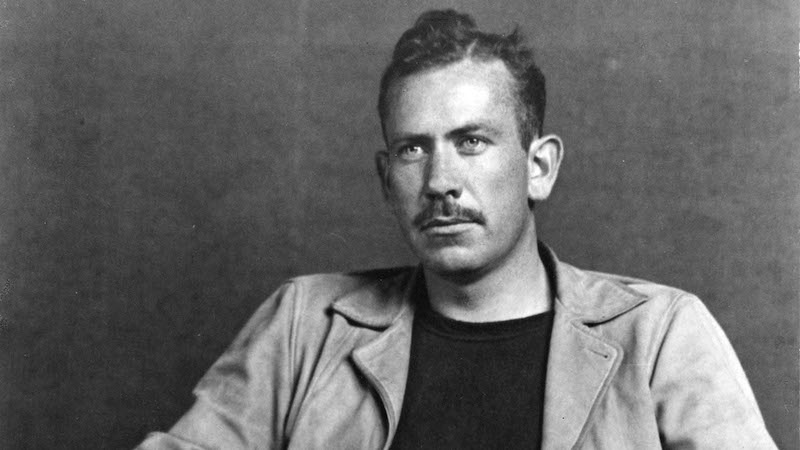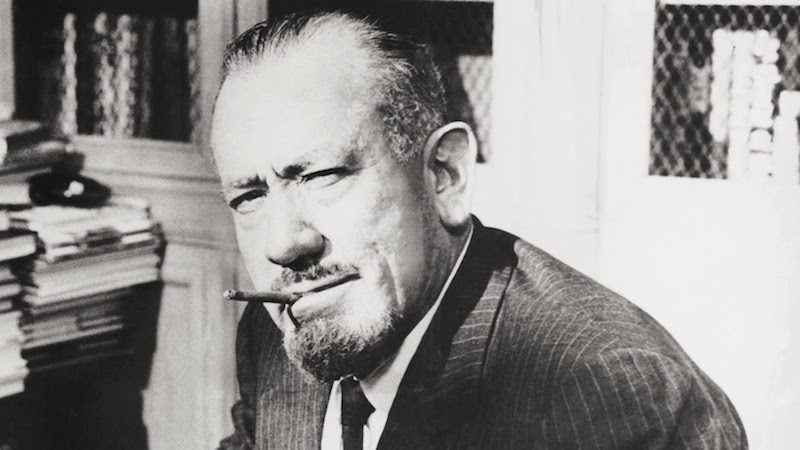John Steinbeck
Episode #1 of the course “Significant American writers of the 20th century”
Born in 1902, John Steinbeck brought a new focus and style to American writing and ideals. Although he penned nearly 30 books, it is his Pulitzer Prize-winning novel of 1939, The Grapes of Wrath, that is considered his best, most well-known work. Steinbeck’s depiction of blue-collar, hard-working Americans and their lives ultimately resulted in his receiving the Nobel Prize for Literature in 1962.
John Steinbeck grew up in California, which becomes the setting for several of his novels. Wanting to be a writer since youth, he worked odd jobs through the early years of the Depression. In 1933, Steinbeck’s novella The Red Pony was published, and although it gained minor attention, his career did not fully pick up momentum until the 1935 comedy Tortilla Flat—a breath of fresh air in American literature during the Depression.
Steinbeck’s subsequent novels, The Grapes of Wrath and Of Mice and Men, earned him acclaim, and by 1939, he was winning prizes as one of the great authors of his day. His novels became successful films and stage productions immediately, which increased his influence and circle of friends. Steinbeck spent the 1940s traveling and writing. During World War II he was a correspondent writer with The New York Herald, then he returned to writing fiction. He published East of Eden in 1952; he considered this work his magnum opus. The novel served as the basis for the film in which James Dean made his Hollywood debut.
The 1950s were calmer for Steinbeck, and he enjoyed traveling the US while continuing to publish. After he was awarded the Nobel Prize in 1962, there was a critical outcry that affected Steinbeck so deeply that he published nothing else for the remainder of his life. He died in 1968 from heart failure that was caused by years of heavy smoking.
Quotes
“You know how advice is. You only want it if it agrees with what you wanted to do anyway.”
“Power does not corrupt. Fear corrupts… perhaps the fear of a loss of power.”
“A journey is like marriage. The certain way to be wrong is to think you control it.”
“Ideas are like rabbits. You get a couple and learn how to handle them, and pretty soon you have a dozen.”
“It is true that we are weak and sick and ugly and quarrelsome but if that is all we ever were, we would millenniums ago have disappeared from the face of the earth.”
Recommended books
“The Short Novels of John Steinbeck”
Share with friends


